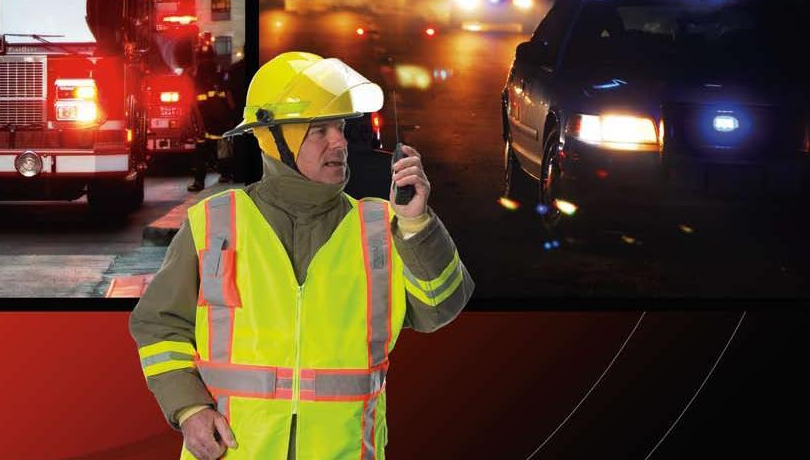
Hi-Vis Jackets: Your Ultimate Protection in Low-Light Conditions
When visibility is compromised, safety takes precedence. Hi-vis jackets are a crucial piece of protective gear for anyone working in low-light or high-risk environments. Whether you’re on a construction site, directing traffic, or cycling through the busy streets of the UK, investing in the best hi-vis jackets is non-negotiable for staying safe and visible. At Top Demand Limited, we’re here to guide you on why these jackets are essential and what makes them the ultimate protection in low-light conditions.
Why Hi-Vis Jackets Are Vital in Low-Light Conditions
In environments where lighting is poor, or visibility is obstructed by weather, hi-vis jackets act as a beacon, making the wearer noticeable to others, especially vehicle operators. Here’s why they are indispensable:
- Enhanced Visibility: The reflective materials and fluorescent colors are designed to catch light and ensure you’re seen from a distance.
- Accident Prevention: By making you highly visible, hi-vis jackets significantly reduce the likelihood of accidents.
- Compliance with Safety Regulations: In the UK, industries like construction, logistics, and traffic management require high-visibility clothing to meet safety standards.
Top Features of the Best Hi-Vis Jackets
To ensure maximum protection, a quality hi-vis jacket should include the following features:
- High-Quality Reflective Materials
The primary function of a hi-vis jacket is to improve visibility in low-light conditions. Look for jackets with:
- EN ISO 20471 Compliance: This UK safety standard ensures the jacket meets the required visibility levels.
- 360-Degree Reflectivity: Ensures you’re visible from all angles, crucial for roadside work or cycling.
- Fluorescent Colors: Bright hues like yellow, orange, or green enhance daytime visibility.
- Weather Resistance
Low-light conditions often accompany adverse weather, making weatherproofing a key consideration. Opt for jackets that are:
- Waterproof: Protects you from rain and moisture.
- Windproof: Shields you from biting winds.
- Breathable: Allows moisture to escape, keeping you dry during strenuous activities.
- Comfort and Fit
The best hi-vis jackets not only keep you safe but also ensure comfort during extended wear:
- Adjustable Features: Elastic cuffs, drawstring hoods, and adjustable waists provide a snug fit.
- Lightweight Options: Ideal for layering or long hours of wear.
- Range of Sizes: Ensures the perfect fit, whether over a t-shirt or heavy-duty winter gear.
- Durability
Durability is essential for those working in rugged environments. Look for:
- Reinforced Seams: Prevent wear and tear.
- Heavy-Duty Fabrics: Materials like polyester or polyester blends ensure longevity.
- Abrasion Resistance: Essential for construction or industrial work.
- Practical Features
A hi-vis jacket should be functional as well as protective:
- Multiple Pockets: For carrying tools, phones, or personal items.
- Zipper with Storm Flap: Provides additional protection against rain and wind.
- Detachable Hood: Offers versatility for changing weather conditions.
Who Needs Hi-Vis Jackets?
Hi-vis jackets are essential for anyone working in or exposed to low-light environments. Common industries and individuals benefiting from hi-vis jackets include:
- Construction Workers: For safety on busy worksites.
- Traffic Controllers: To remain visible to drivers in all weather conditions.
- Cyclists and Pedestrians: For navigating busy UK roads during early mornings or late evenings.
- Warehouse Staff: Particularly in environments with limited lighting or moving machinery.
- Emergency Responders: To stand out in critical, often chaotic situations.
Tips for Maintaining Your Hi-Vis Jacket
To ensure your hi-vis jacket provides long-lasting protection, follow these maintenance tips:
- Regular Cleaning: Dirt and grime can reduce the effectiveness of reflective materials.
- Inspect for Damage: Check for tears or faded reflective strips, and replace the jacket if needed.
- Store Properly: Keep the jacket in a dry, cool place to avoid damage to the fabric and reflective strips.
Conclusion
Hi-vis jackets are a vital investment for anyone working in or traversing low-light environments. They don’t just keep you visible—they keep you safe. At Top Demand Limited, we are committed to providing hi-vis jackets in the UK that combine top-tier protection with unmatched comfort and durability.




